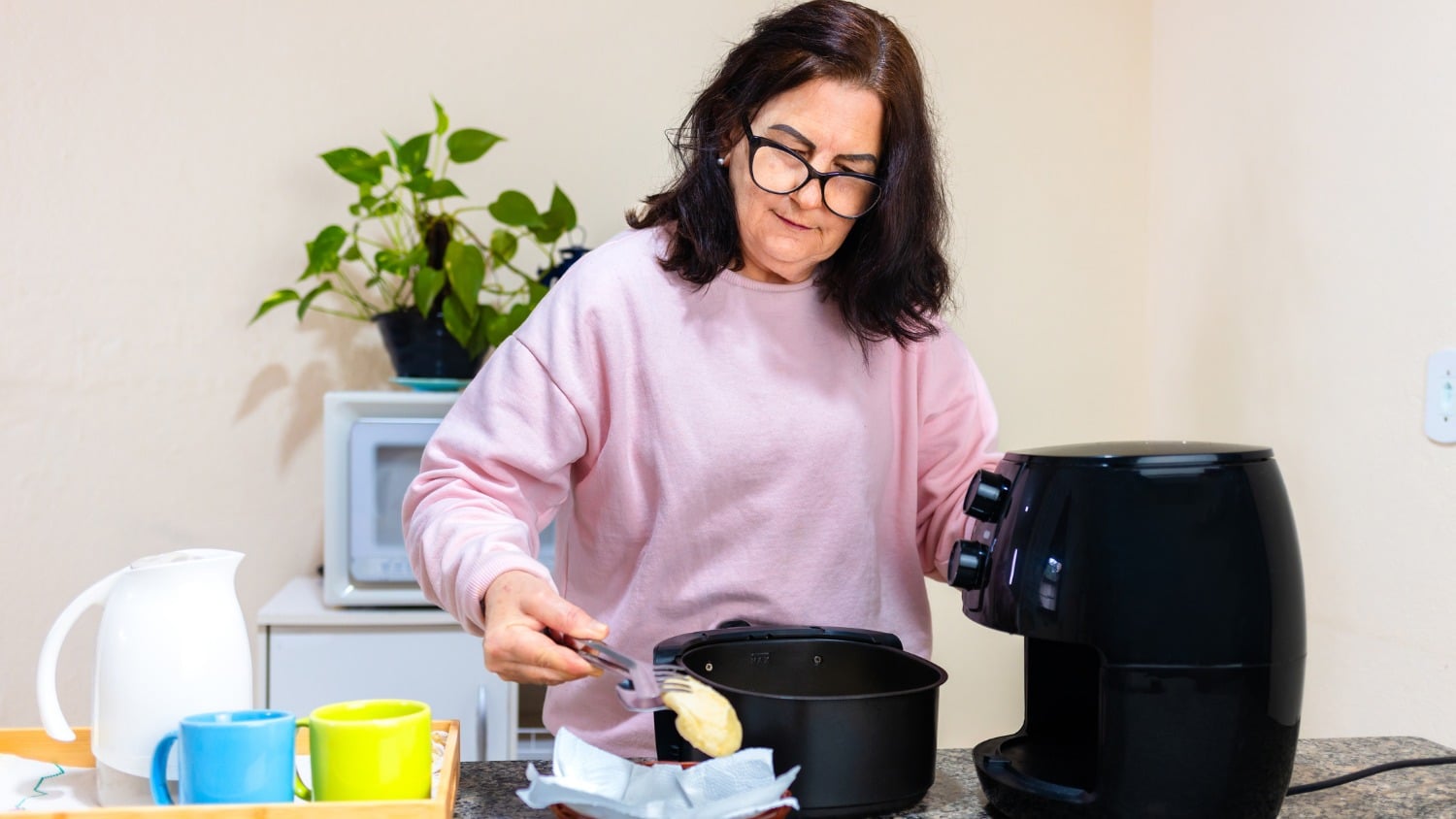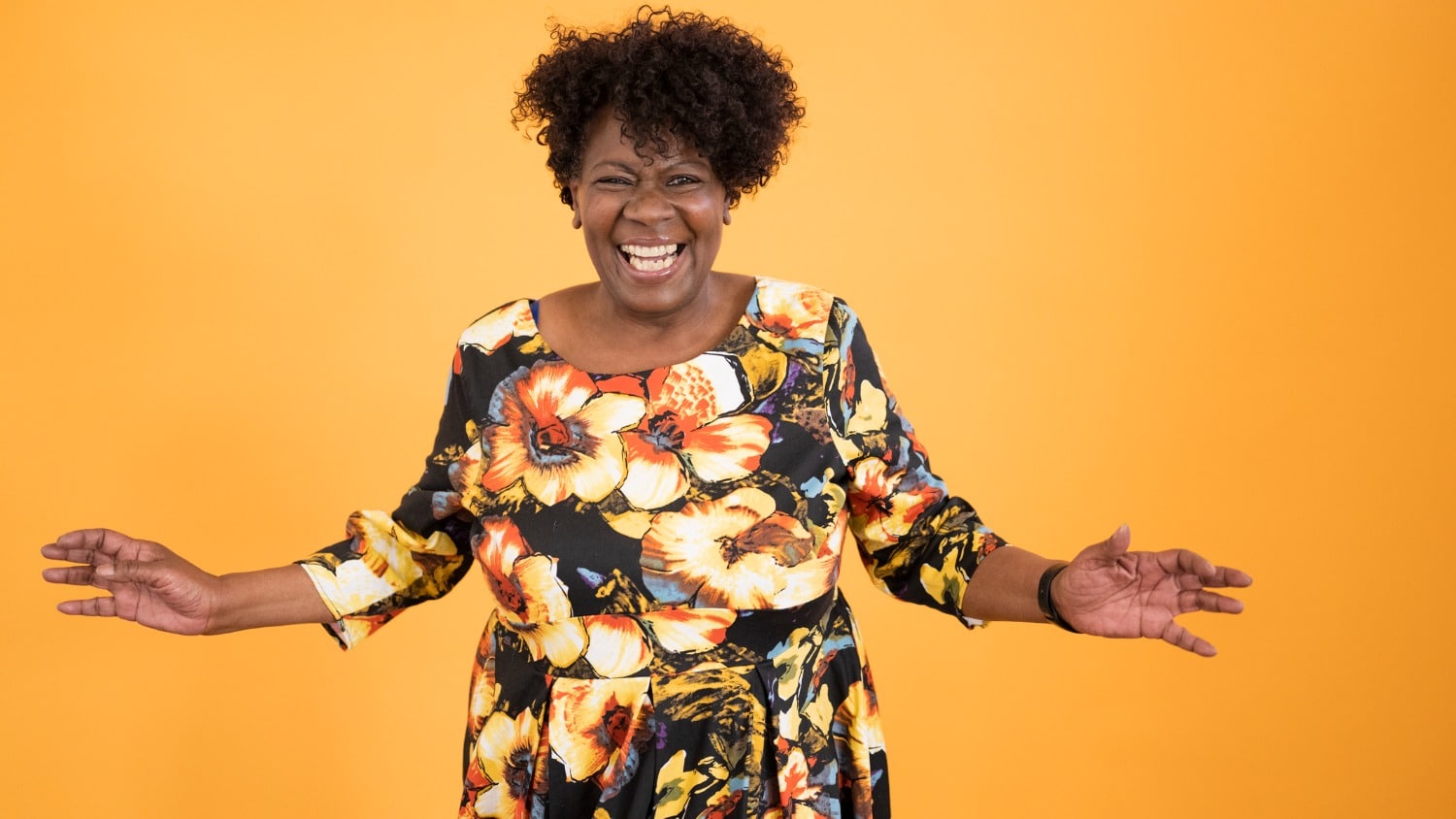Speaking the Language of Love After 60
What is the language of love? Would you know it if you heard it?
From movies, books, and personal relationships to the commercialism of Valentine’s Day, no generation before ours had ever been exposed to such a wide range of expressions of love.
In all of the ways we are exposed to different styles of the language of love, rarely are we shown what it sounds or feels like to lovingly speak to our own selves.
In this article, and the accompanying video, we are going to address the following:
- Why it is so difficult to lovingly speak to ourselves after 60.
- The three most important things to pay attention to when it comes to the language of love.
- The best time and place to develop your own personal language of love.
Why the Language of Love Is Uncomfortable
Growing up we all received guidance on how to treat people kindly and how to talk respectfully to those we cared about. Few of us, however, were taught the importance of loving self-talk, let alone how to do it.
We were also taught to place other’s needs above our own, believing this was how we express our love. This left little time to honor our selves.
All of this added to an awkwardness about how to lovingly care for our well-being let alone how to lovingly speak to ourselves from within.
Our Own Language of Love
As our generation grew into adulthood, our desire for loving relationships increased. Along the way, we unconsciously developed our own unique language of love.
This language included, but was not limited to, the words we used, the tone, our intentions, and also how we responded to specific types of loving language that was spoken to us.
Speaking lovingly with those we care about is one thing. But learning to lovingly speak to our own selves, was something else altogether.
Now that we are over 60, how can we move beyond feeling uncomfortable lovingly speaking to ourselves? And what can we do to develop an inner language of love that nurtures, empowers, and honors the beautiful person we are today?
Observe Your Inner Dialogue
Speaking to yourself lovingly and respectfully is the foundation of self-love. Your own personal language of love is also essential to any self-care practice you engage in.
If you find yourself struggling with self-love and engaging in self-care practices, there is one thing you can do right now to radically love more of who you are.
Observe your inner dialogue so you can change what is not serving you.
This is where you develop your own unique inner language of love after 60.
What gets in the way of this?
As we have covered in previous articles, limiting beliefs about self-love are toxic.
This goes for the stories many people tell themselves about how unworthy they are to give and receive love. These beliefs and stories keep you locked into unhealthy dialogue with yourself.
Another common obstacle is an overly busy life.
Maintaining an active lifestyle after 60 is paramount to our well-being. But most people are so overwhelmed and busy they ignore how they are speaking to themselves.
In fact, negative inner dialogue goes on so often it is accepted as normal and unchangeable. It is not normal, and it can be changed.
How to Shift from Negative Self-Talk
When you are feeling rushed, overwhelmed, angry, resentful, anxious, or unworthy about life and love these are moments to slow down.
Give yourself some space to feel the love of your authentic self. This is where you shift from negative self-talk to the language of love.
The language of love is different for each of us. There are, however, three common things to pay attention to that universally work.
- Speak to yourself in a loving tone and with encouraging words.
- Consciously pay attention to how you feel as you observe inner and outer dialogue along with behavioral patterns that are loving and kind.
- Contrast those to dialogue and behaviors that are critical, fearful and carry a doubtful nature about love, life, and yourself.
The Best Time and Place for the Language of Love
Your personal language of love can be nurtured and developed by observing how you respond to your inner desires to love yourself when you are alone.
One of the most time honored and proven methods for observing how you speak to yourself is through journaling.
Other examples include opportunities to engage in self-love and self-care practices without guilt, shame, or feeling you are not being productive.
This also includes responding to impulses to spontaneously do something that will light you up.
Ultimately, the best time and place for the language of love is in the now of nows.
Please join me in the video above this article where I share additional insights and guide you through three thought-provoking journal prompts.
Let’s Have a Conversation:
Do you love yourself? Do you express this love? How have you developed your own language of love? Please share in the comments.
Tags Empowerment







I was first married to someone many years my senior. Unfortunately we ended up living in the same town as his family. After a while he tried to negate what I was when he married me. Later I realized he was being brainwashed by his mother. I’d forgotten who I was and where I was coming from. It wasn’t until I met someone who was in the same situation as me there, but who had had a similar background as I that I remembered who we were. Needless to say After sticking it out a few more years I divorced this man. Over the years I’ve begun to be kind to myself and to treat myself as a little lovable child whom I wouldn’t want any harm to come to. It’s not always easy of course because I am a Buddhist and we believe in sacrificing for the wellbeing of others especially for our children. But according to Buddha we also come first and he preached to his disciples that to be able to take care of others we must first be strong enough for it. He preached the Middle Path, a path between two extremes: hedonism and asceticism. I just turned 65 recently and am realizing that this body of mine needs taken care of because it’s creaking and aching here and there. I exercise still but with caution. My mind has been taken care of simply because I have hypertension and need to rein in my negative emotions. It’s been a long and winding road and still many more miles to go but I have begun to pat myself on the back for a few things and even if there’s nothing to shout about, I say, so what, who cares?
Thank you for sharing a part of your journey. I relate in many ways. I believe it’s never to late to start over. Soon I turn 68 and I’m doing my best to care for my mind, body and soul. Many of the Sixty And Me articles ecourage me like a trusted friend.
As we age, our relationships may change, but the importance of love and connection remains the same. Speaking the language of love after 60 is about continuing to show your partner that they are loved and appreciated, and finding new ways to express your affection. Whether it’s through words, acts of service, quality time, physical touch, or other forms of love language, what matters most is that you continue to make your partner feel valued and cherished.
I am a 63 year old man who is a recovering Alcoholic. I leaned back in ’85 when I got sober how to love my self. It took the next 5 years, but I got better at it. I celebrate myself by dancing. I’ll go out most Fridays and that’s how I celebrate life.
Your article reminded me of my dear Mom who didn’t know how to love herself. She had the unfortunate habit of always putting herself down …”My legs are so ugly (varicose veins)” “My skin looks so bad” “I hate my name” (despite her great-granddaughter’s first name being named after her because her grandson’s wife LOVED the name). We couldn’t convince our Mom of her wonderful self. What I learned from that was to never verbally put myself down. Yes sometimes I have internal dialogs of what bothers me but I remember those times with my Mom and lean into the language of love as you’ve so beautifully written about in this article.